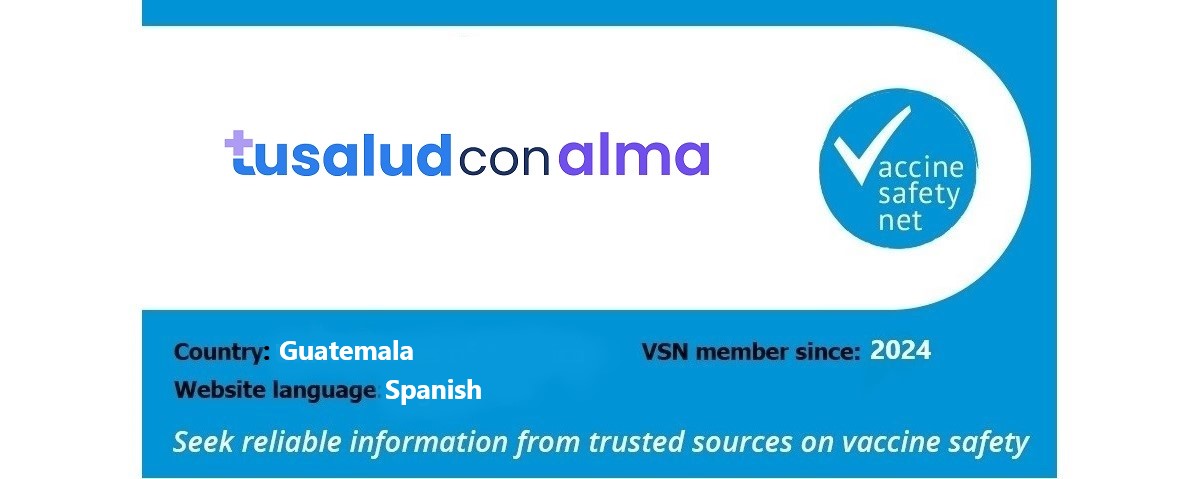Tu Salud con ALMA

The Guatemalan foundation FUNDEGUA (in Spanish, the abbreviation stands for Fundación Desarrolla Guatemala para la Salud y Educación) created the digital telehealth system ALMA, which supports Guatemalans in navigating healthcare services and clinical recommendations to help prevent, treat, and manage illness.
Website: https://tusalud.com.gt/
Country: Guatemala
Last evaluation: 2024
Website audience(s):
Healthcare professionals, General public, Media
Description of the website
The website of Tu Salud con ALMA is a member of the WHO-led project Vaccine Safety Net (VSN).
Our team created a digital technological system called ALMA during the COVID-19 pandemic that we have scaled to cover all healthcare services.
On this website, users can find general information about health-related issues and how to navigate the healthcare system in Guatemala, both in the private and public sectors. This website offers three components: educational modules on specific healthcare subjects, a healthcare service directory, and community forums. In the educational modules, users can find vast information about vaccines, including the vaccination schedule for all age groups in Guatemala and information about individual vaccines. Per vaccine, we detail the diseases prevented, age for administration, statistical data about coverage, catch-up vaccination guidelines, adverse events, special situations, contraindications, precautions, when to talk to a doctor before getting the vaccine, what to do in case of an emergency, where to get vaccinated in Guatemala, and where to get treatment for the disease. Additionally, users can find information about vaccine safety, including frequently asked questions about vaccine safety, security and benefits of vaccination, the kind of vaccines that exist and why they are essential, vaccine safety vigilance procedures, VAERS (vaccine adverse events report system), a glossary of terms associated to vaccine safety, clinical studies and the process of vaccine approval and information for the different groups in the population (pregnant women, elderly, and immunocompromised persons). All the information above references official sources: Ministry of Health guidelines, World Health Organization, National Institutes of Health, Centers for Disease Control and Prevention, among others.
Other educational modules on the website include breast cancer, blood donation, neurological diseases, vector-borne diseases, acute respiratory diseases, foodborne diseases, and preventive health, and the content list is growing daily.
Website’s sponsorship policy
Partnerships and sponsorships are integral to the growth and strength of our website's content. They provide financial support or in-kind donations, which are used to cover our communication and clinical teams' salaries and thus create specific content for educational modules on tusalud.com.gt. On the other hand, general sponsorships or financial donations contribute to our project's overall success. Every contribution has to maintain the quality of our clinical information, project principles, and editorial integrity.
Website’s content or editorial policy
The editorial policy ensures transparency, with detailed sourcing, authorship, and updated information for each article, maintaining the highest standards of scientific evidence and clarity for a diverse audience. The aim is to produce accurate, regularly updated, accessible educational content on TuSalud.com.gt. The methodology involves an internal diagnosis to identify areas for improvement, collaboration with health experts to update content and improve navigation, and obtaining expert validation to ensure accuracy and reliability. To see our full policy visit the editorial page.
Visit Vaccine Safety Net portal; with live news from the VSN members and other VSN related information and resources.
